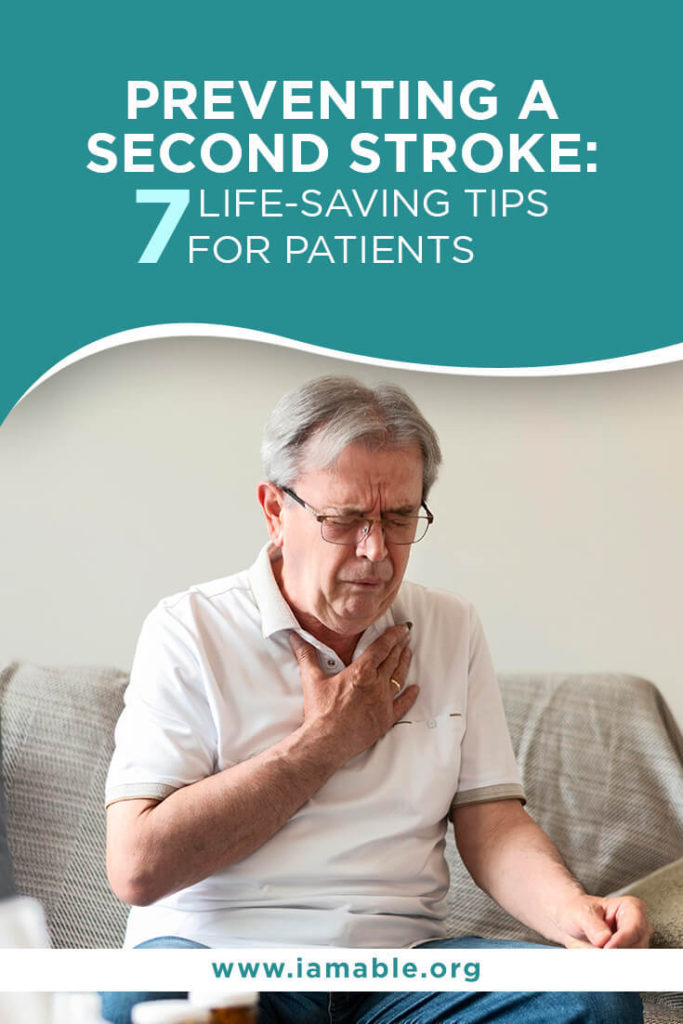Miami, FL 33186

Did you know that about 23 percent of stroke survivors are at a greater risk of suffering from second or recurring stroke attacks? On top of that, patients who go through another cerebral infarction within three months after the first attack tend to suffer severe and permanent brain damage. This can significantly impact a patient’s chance of achieving stroke recovery in Miami and lessen the survival rate.
Thankfully though, you can increase your chances of avoiding this troubling situation with the help of simple lifestyle changes. Learn about the top 7 life-saving tips for stroke survivors below.
Stroke.org shares that high blood pressure is one of the most significant risk factors for recurring strokes. That’s why if you want to avoid hiccups in your journey towards stroke recovery in Miami, you must pay close attention to your blood pressure. We suggest keeping a digital sphygmomanometer at home so you can check if you’re within the normal blood pressure range based on your age.
If in case you’re above the normal range, we recommend asking for medications that can help you regulate your blood pressure. Some examples of medicines used to keep blood pressure problems at bay include the following:
The Mediterranean diet has earned its reputation for keeping meals low in cholesterol. It has also gained plenty of traction in the health community because studies associate it with things such as:
Furthermore, a 2018 study published in the Stroke journal found that switching to a Mediterranean diet works wonders in lowering stroke risks. It might help to explore this diet or integrate food items like fish, nuts, fruits, and veggies into your daily meals.
Stress, anxiety, plus other mental health concerns can push your heart to work harder. Additionally, studies note that stress can trigger widespread inflammation. When this happens, macrophages get released into the bloodstream and increase the likelihood of thrombus (blood clot) formation and plaque rupture. So, moving forward, we recommend reducing or eliminating your sources of stress and anxiety by following any of these tips:
Any patient who wants to ensure stroke recovery in Miami needs to stay in touch with a cardiologist. This will help you assess your heart’s overall condition and detect blood circulation problems before they trigger complications that might lead to another attack.
Besides a cardio doctor, we recommend working with other specialists like neurologists, occupational therapists, and speech therapists. With their guidance and comprehensive diagnosis of your overall wellbeing, you can improve how you cope with the effects of your first stroke and manage risks for subsequent attacks.
A study explains that high blood sugar levels can result in larger lesions in the brain during a stroke and an increased mortality rate. Because of this, many researchers look into the potential of using glucose-lowering therapy to help recovering patients avoid fatal complications like another infarction. Doctors also advise stroke patients to regulate their blood glucose levels by doing the following:
Many studies have proven that nicotine and alcohol can cause detrimental effects. It also poses several risks to patients with pre-existing health issues like a previous stroke. Here are some quick facts to help you understand their impact on your body:
Activity-based therapy is among the most popular rehabilitation programs people undergo to speed up stroke recovery in Miami. Essentially, it involves performing guided exercises with varying intensity levels to help stimulate body parts paralyzed after a stroke. The technique also provides several benefits to stroke survivors, including
At iAM ABLE, we provide this program together with other services designed to help stroke survivors cope better with paralysis and decrease the risk for recurring cerebral infarction and other health complications.
We encourage you to visit our fitness center at 14241 SW 120 ST Suite #107 Miami, FL 33186. Alternatively, you can ring our office at 305-283-9717 or download our guide on ensuring a smooth stroke recovery in Miami.
Grab our free e-book 7 Unbelievably Important Steps to Take to THRIVE after Paralysis by clicking the image below.
